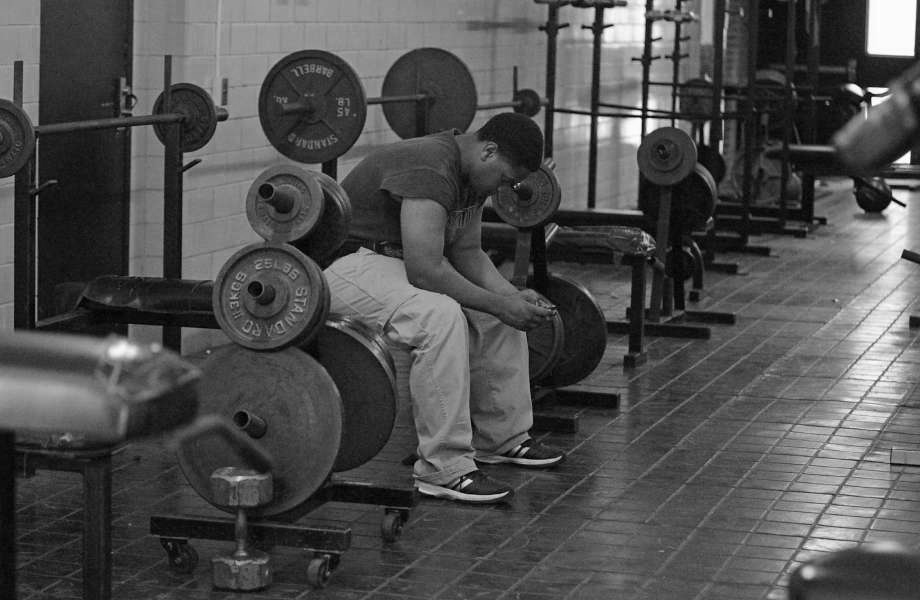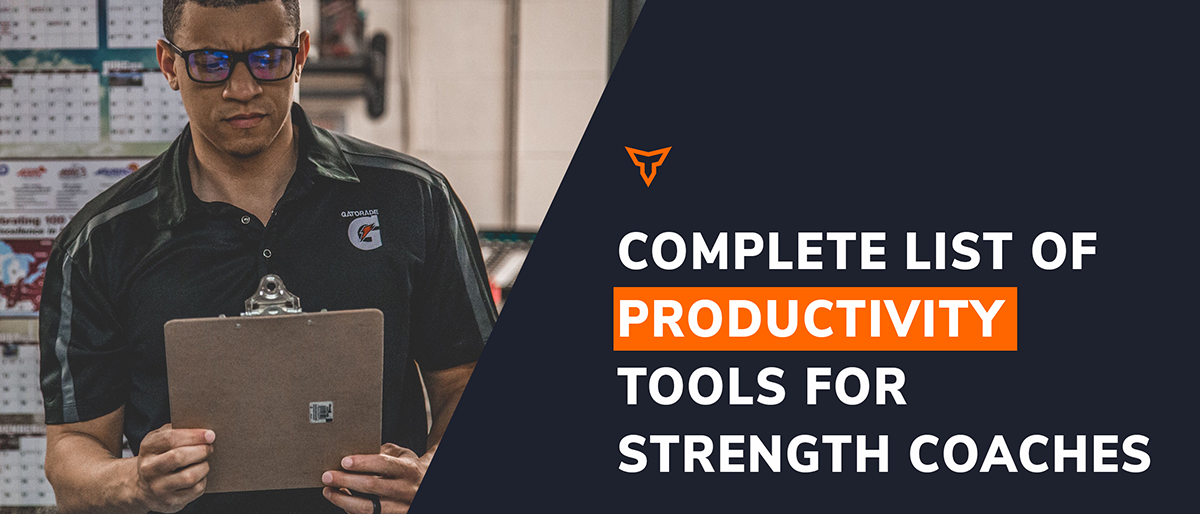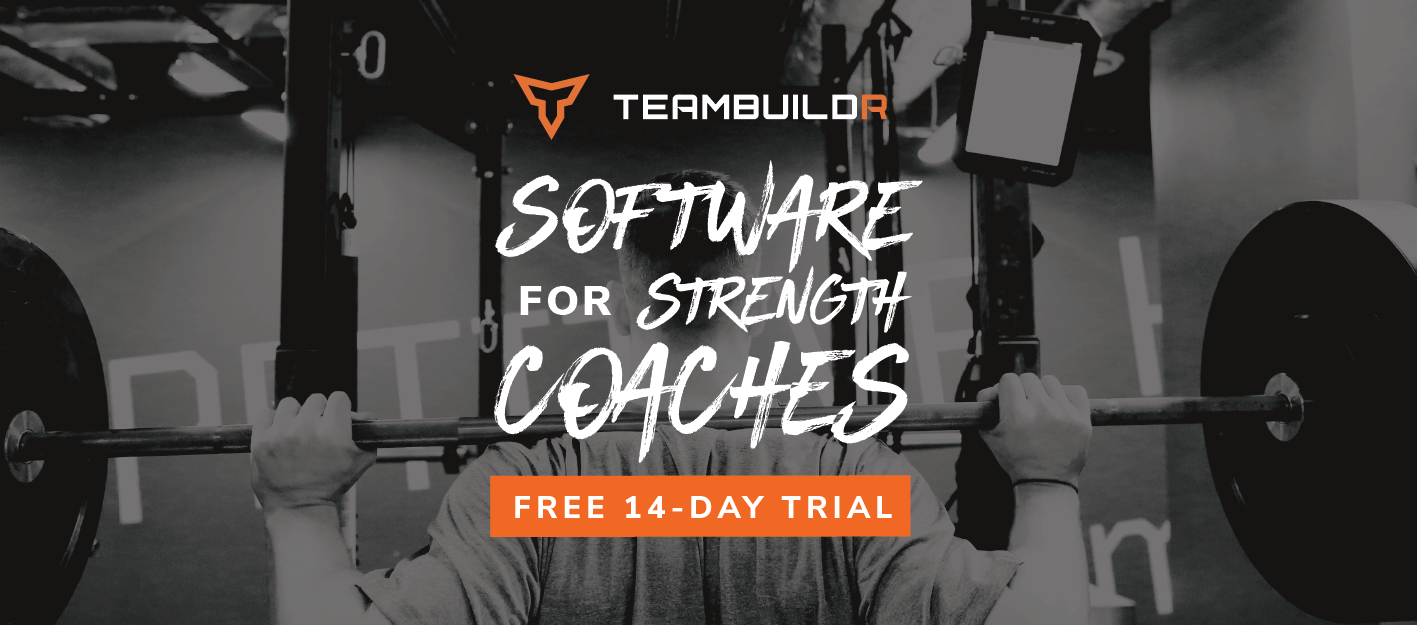How Strength Coaches Can Stand Out in a Crowded Market
For more than a decade the sports performance industry has seen enormous expansion in the number of performance staff employed across the UK. More notably, an increase in the total number of strength and conditioning (S&C) roles across professional sport and non-professional domains, such as schools and universities, has increased substantially. Since the S&C industry was established in 2006 the UKSCA supported a membership of 291 members. Today, the UKSCA membership sits at a total of 2,446 members, averaging a growth of 166 associate/accredited coaches per year across a 15-year period. Of course, this value doesn’t represent the entire industry, but a reference to an increasing number of certified UK-based coaches, nonetheless.
Unsurprisingly, with more coaches working in the industry the education sector has expanded rapidly with more universities offering higher education programmes in S&C than ever before. Since the first ever S&C Masters was launched in 2008 by Edinburgh University, there are now 22 undergraduate and 23 postgraduate programmes active in 2019 (see UKSCA university directory for the current list). This incredible growth hints at a growing number of coaches gathering BSc and MSc certifications in a bid for more knowledge and the credentials to compete against others in a highly competitive marketplace.
More recently in 2016, the UKSCA conducted a ‘State of the Nation Survey’ asking 600 UKSCA responders (members and non-members) to communicate on their career experience, job status, remuneration and qualifications, to name a few. The results revealed a sobering and troubling message to UK coaches –
“We have a market that’s coach rich, academically strong and a large variance in pay….”
I started my coaching career over 15 years ago and never before has there been more stigma around ‘low pay,' ‘not enough roles’ and ‘unpaid jobs’ in the market as there is right now. Social media is practically seething with coaches venting against advertised roles providing low pay and questioning the nobility of employers offering skilled coaches voluntary positions with near to/full-time hours.
In every instance I believe coaches should be paid what they’re worth (however ambiguous that notion is). And it is professionally wrong to expect people to work ~40 hours for free having invested tens of thousands on an education and certifications to become employable. However, judging by the aforementioned 2016 State of the Nation Survey, unless you’re >5 years experienced, with a higher degree, more than half of the industry should expect to receive a salary of less than <$26k a year… This doesn’t mean it’s right or even fair, but it’s what the economy is prepared to pay coaches in the current climate. The basic rule of economics tells us that the market will pay what it feels the service is worth. Change the consumers perception of the S&C coaches’ value and the market will adjust. Therefore, increasing the value of the S&C coaches in the eyes of the employers is the goal, but what is the process to address the problem at hand?
In a recent Twitter discussion around fairness of pay, Eric Cressey commented –
“compensation is driven down for many S&C professionals because they don’t realise how homogeneous their skill set is in relation to the available talent pool. I see 500 resumes per year and 75% are shockingly similar."
For me, this is the bigger problem at large. Despite a growth in the number of coaches with academic horsepower, we’re unable to communicate our value to the consumer. And dare I say, they also don't know how to sell our value effectively to potential employers.
If you’re a coach reading this and you have coaching experience, a degree (or several) and an industry recognised qualification, how you go about differentiating yourself from many others with the same credentials is the key to getting the salary you're worth. And presumably above the average pay in the current market is our goal? If you can’t, then you should expect to receive a salary in line with that of the current market value.
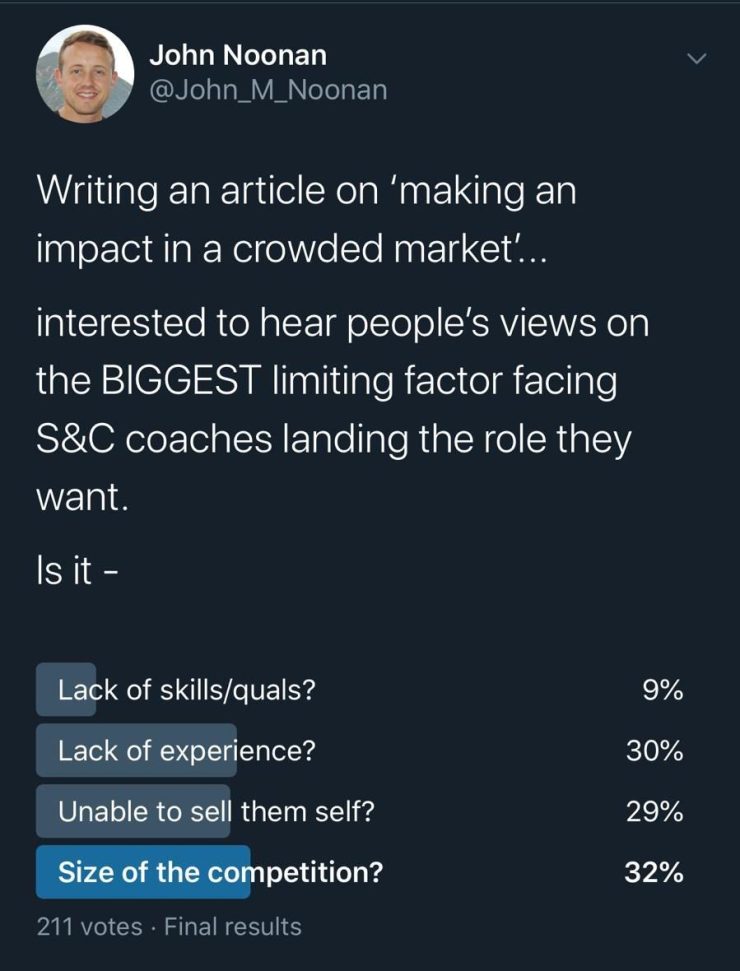
In a recent online Twitter poll (above), I asked the good people of Twitter to vote on “What is the BIGGEST limiting factor facing coaches landing the role they want?”. Out of 211 responders, 68 people (32%) voted that the "size of the competition" was the problem at large. Perhaps a more troubling finding though is that 29% of voters feel they’re "unable to sell them self" to potential employers/clients.
While this is simply a one-time vote, it gives a snapshot insight into coaches’ perception about the current job market. On reflection future polls should distinguish is the voters' length of industry experience; do coaches with less than <5 years experience account for a large proportion of the vote? Having considered this, in either situation, experience is often a determining factor even between highly qualified coaches competing for a role.
But if as the poll suggests, size of the competition is the biggest limiting factor, yet you have the requisite experience, qualifications and skills, then how you differentiate yourself from the competition is clearly more important and very often a decisive factor in my opinion. This is especially important if you’re looking to work in the professional sport market. The aforementioned UKSCA state of the nation survey highlighted a majority of responders worked in the professional club/team sector. And as we well know, in the current market an academy/first team role can fetch anywhere from 50 up to 300 applicants!
Let’s face facts: Competition will always be a major challenge for any role but accepting it as the reason you can’t land a role your worth is pessimistic. I say this because I’ve hired lesser experienced coaches whom did an exceptional job demonstrating their worth. Employers generally prefer to hire those with relevant experience and qualifications, but how you distinguish your value against others on a strong short list is very often the defining factor in an appointment. So, if you’re someone who struggles to sell yourself at interview and communicate your value, consider a method I’ve termed; Lead with Value.

The ‘Lead with Value’ method
Define Your Value
Take a moment to consider the following question – Can do you define your value?
Here are some considerations:
- What is your best skill set?
- What do you do better than anyone else?
- What abilities do you possess that someone may want to invest in?
- Can you offer a different perspective and/or competitive insight to problem solving for others?
Identify the above and now you’re thinking about value as an influencer. People aren’t interested in what you do, or what you have, until you can help others see how your value benefits them. Simply outlining your qualifications and where you’ve worked to someone is ordinary, uninspiring and leaves out why this is important to the role, organisation and people. The latter, being the most important part!
Once you’ve established your core skillset and the personal, professional qualities you possess that might be considered as ‘employable qualities,' you’re now in a position to add the next two factors to your toolbox.
Grow Your Value
Broadly speaking, when we think of growing our value, coaches typically think in terms of knowledge (education), applied skills, industry experience and network (see table below). As mentioned earlier, the options available in the education sector are endless and highly accessible. And while it is essential to keep our coaching relevant, the challenge I see for many coaches however is pursuing education with a tangible outcome in mind – i.e. are you attending a conference just to sit and watch presentation after presentation, or are you using it as a vehicle to consciously connect/ reconnect with other coaches and people you’ve never met before? And in doing so, build effective relationships which may help you open more doors down the line?
“Your network is a lagging measure of your communication.”
- James Clear
In terms of experience, generally organisations prefer to hire coaches whom have on-the-job experience, this helps build an awareness and appreciation of the hard and soft skills used in practice. And the last time I checked employers don’t turn their nose up at those with unpaid experience; experience is experience. My advice in this space is to accumulate as much as possible early in your career, and if possible, selectively approach options with an intentional link to the direction you wish to take your career.
Among the headings listed in the table below – growing your network is possibly the cheapest, least time-intensive and yet arguably one of the more important factors that determines your likelihood of being known as someone that can be trusted to a good job. In the book ‘The Key Person of Influence’, Daniel Priestley states your biggest asset in becoming a KPI is how many people know you right now? It’s a known fact that people want to do business with who they know, like or they can trust. With this considered, making a considered effort to develop a network or trusted friends and peers in the profession will help you acquire knowledge, share skills and offer invaluable experience. And it’s free you say!?

Key areas coaches commonly associated with value.
Communicate Your Value
If you want people to hire you based on your value, you have to be able to tangibly show and communicate your value with impact. Often coaches understand what, how and why they do what they do, but lack the ability to skillfully convey how their work is of value to the other person in the conversation. And judging by the aforementioned poll this is a REAL problem.
Case in point – How many coaches do you know that do great work but no-one knows they exist? I’ll bet, too many! In my experience, the ability to communicate our value is the most under-developed skill in the modern-day S&C coach. For the record, I haven’t gotten this right every time and I’ve experienced my fair share of unsuccessful applications and fluffed interviews. But I’ve learned through experience that the more I approached job applications with a thoughtful plan, the more success I’ve had.
When we talk about articulating our message, we must think in wholesale terms of what and why this may be of value to the person we engage. We live in an industry and time where information is readily available, skilled coaches are plentiful, and there are hundreds of coaches with the requisites to do a job. Employers aren’t interested in someone who can ‘just do the job’, they want someone who can solve their problems, bring something unique to the organisation, and help transcend the current level of service. In essence, can you be an influencer?
This is where we must have a process aligned to each stage of the application process. Have a plan about how you communicate your experience, skills and practice, and how you articulate this in a manner that offers someone else value. More specifically, how you communicate what your qualities are and relate this to someone else’s environment is key.
Closing Thoughts
We are no longer in an age where people maintain a job for life anymore, especially in professional sport. The reality is that we move roles periodically which means we need to become comfortable with the dynamics of change. Part of the challenge with this is how we continue to influence others and offer value. Therefore, our ability to sell ourselves becomes an increasingly prominent skill we must develop and refine.
Of course, there’s a high supply of coaches and commensurately lower demand for coaching roles (mainly in the elite sport sector) but this isn’t going to change anytime soon, nor is this the main problem. Rather it’s our perception about the problem that’s disorientating our ability to work around the issue. And so, the choice to become a value focused coach able to influence others versus simply an operative coach is our segway to greater market value. Apply the ‘Lead with Value’ method to set yourself apart from the crowd.
Combatting the challenges the professional market poses todays coaches is one of the reasons I created a personalised Coach Mentorship programme earlier this year. Helping coaches maximise their value by developing specific knowledge, skills and methods to become more successful in their domain and have more impact as a coach. You can find more information about this on my website on the Coach Mentorship page.
For more information from Coach John Noonan follow him on Instagram.
Subscribe to our blog
Subscribe to receive the latest blog posts to your inbox every week.
Related posts
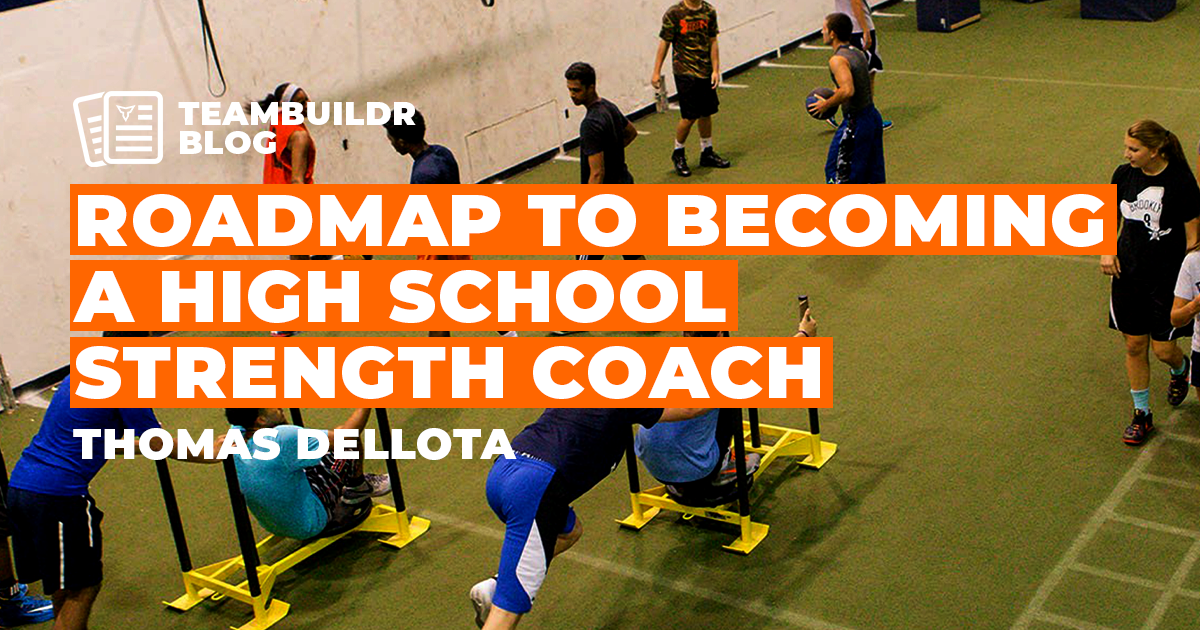
Roadmap to Becoming a High School Strength Coach
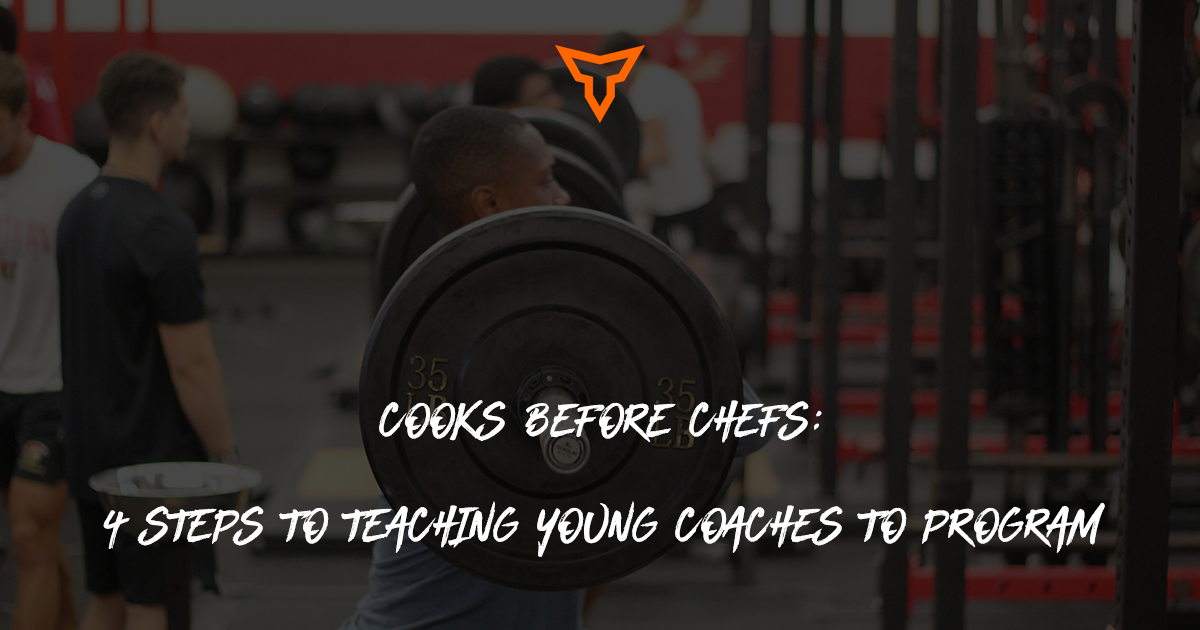
Cooks Before Chefs: 4 Steps to Teaching Young Coaches to Program
